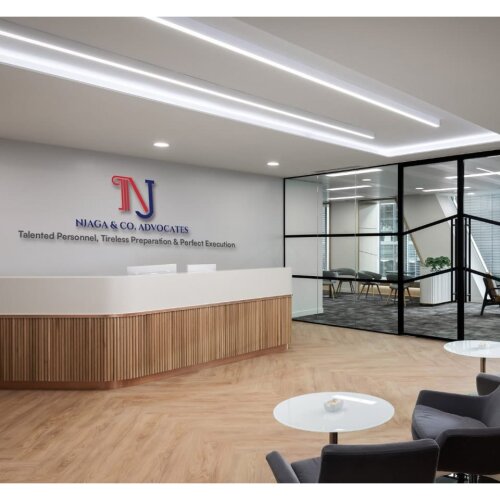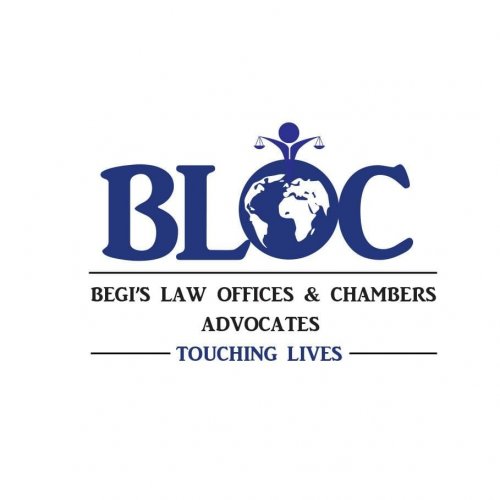Best Antitrust Lawyers in Nairobi
Share your needs with us, get contacted by law firms.
Free. Takes 2 min.
List of the best lawyers in Nairobi, Kenya
Legal guides written by Adroit Law LLP:
- Kenya Launches Digital Nomad Visa: A Gateway for Remote Workers
- Navigating the Payment System License Maze in Kenya
- Navigating the Complexities of Mining Licenses and Permits in Kenya: A Look into Artisanal and Large-Scale Operations
About Antitrust Law in Nairobi, Kenya
Antitrust law in Nairobi, Kenya is designed to promote fair competition and protect consumers' interests by preventing the abuse of market power and anti-competitive practices. It aims to maintain a level playing field for businesses and safeguard the economy. Antitrust regulations in Nairobi are governed by the Competition Authority of Kenya (CAK), established under the Competition Act, 2010.
Why You May Need a Lawyer
There are several situations where seeking legal assistance in matters of Antitrust can be beneficial:
- If you suspect that a company or business is engaging in anti-competitive practices that harm consumers or other businesses.
- If you are facing accusations of engaging in anti-competitive behavior and need to defend your rights.
- If you need guidance on mergers, acquisitions, or collaborations, ensuring compliance with Antitrust laws.
- If you require legal advice on pricing, distribution agreements, or contracts to ensure they do not violate Antitrust regulations.
- If you need assistance in filing complaints or responding to investigations initiated by the Competition Authority.
Local Laws Overview
Key aspects of Antitrust laws in Nairobi, Kenya include:
- Prohibition of anti-competitive agreements between businesses that restrict trade or prevent new entrants.
- Restrictions on abuse of dominance by companies that have substantial market power.
- Regulation of mergers, acquisitions, joint ventures, and collaborations to prevent anti-competitive effects.
- The Competition Authority of Kenya has the power to investigate and take enforcement action against violations of Antitrust laws.
- Violators of Antitrust laws may face significant penalties, including fines, imprisonment, or both.
Frequently Asked Questions
1. What is considered an anti-competitive agreement?
An anti-competitive agreement is any agreement between businesses that has the intent or effect of preventing, restricting, or distorting competition. Examples include price-fixing, market allocation, bid-rigging, or colluding to prevent new market entrants.
2. What constitutes abuse of dominance in Nairobi, Kenya?
An abuse of dominance occurs when a company with significant market power engages in unfair practices that harm competition. This can include predatory pricing, exclusivity arrangements, discriminatory pricing, or refusing to supply essential goods or services to competitors.
3. What is the process for filing a complaint with the Competition Authority of Kenya?
To file a complaint with the Competition Authority of Kenya, you can submit a written complaint detailing the alleged anti-competitive behavior. The complaint should include relevant evidence and supporting documents. The Authority will conduct an investigation based on the information provided.
4. What are the penalties for violating Antitrust laws in Nairobi, Kenya?
Violators of Antitrust laws can face substantial penalties. Individuals may be subject to fines of up to KES 10 million and imprisonment of up to five years. Companies can be fined up to 10% of their annual turnover.
5. Are there any exemptions to Antitrust laws in Nairobi, Kenya?
Antitrust laws may provide certain exemptions for behavior that is considered to have pro-competitive effects or benefits consumers. Examples include agreements that promote technological or economic progress, improve production or distribution, or enhance product quality or competitiveness. Exemptions are typically evaluated on a case-by-case basis.
Additional Resources
If you need further information or legal assistance in Antitrust matters in Nairobi, Kenya, consider reaching out to the following resources:
- Competition Authority of Kenya (CAK) - https://www.cak.go.ke/
- Law Society of Kenya - https://www.lsk.or.ke/
Next Steps
If you require legal assistance regarding Antitrust in Nairobi, Kenya, consider taking the following steps:
- Gather all relevant documents, contracts, and evidence related to the issue at hand.
- Research and contact reputable lawyers or law firms specialized in Antitrust law and practice in Nairobi, Kenya.
- Schedule consultations with potential lawyers to discuss your case and evaluate their expertise and experience.
- Select a lawyer who understands your needs, has the necessary skills, and can guide you through the legal process effectively.
- Work closely with your chosen lawyer to address your legal concerns and take appropriate action in accordance with the Antitrust laws of Nairobi, Kenya.
Lawzana helps you find the best lawyers and law firms in Nairobi through a curated and pre-screened list of qualified legal professionals. Our platform offers rankings and detailed profiles of attorneys and law firms, allowing you to compare based on practice areas, including Antitrust, experience, and client feedback.
Each profile includes a description of the firm's areas of practice, client reviews, team members and partners, year of establishment, spoken languages, office locations, contact information, social media presence, and any published articles or resources. Most firms on our platform speak English and are experienced in both local and international legal matters.
Get a quote from top-rated law firms in Nairobi, Kenya — quickly, securely, and without unnecessary hassle.
Disclaimer:
The information provided on this page is for general informational purposes only and does not constitute legal advice. While we strive to ensure the accuracy and relevance of the content, legal information may change over time, and interpretations of the law can vary. You should always consult with a qualified legal professional for advice specific to your situation.
We disclaim all liability for actions taken or not taken based on the content of this page. If you believe any information is incorrect or outdated, please contact us, and we will review and update it where appropriate.

















